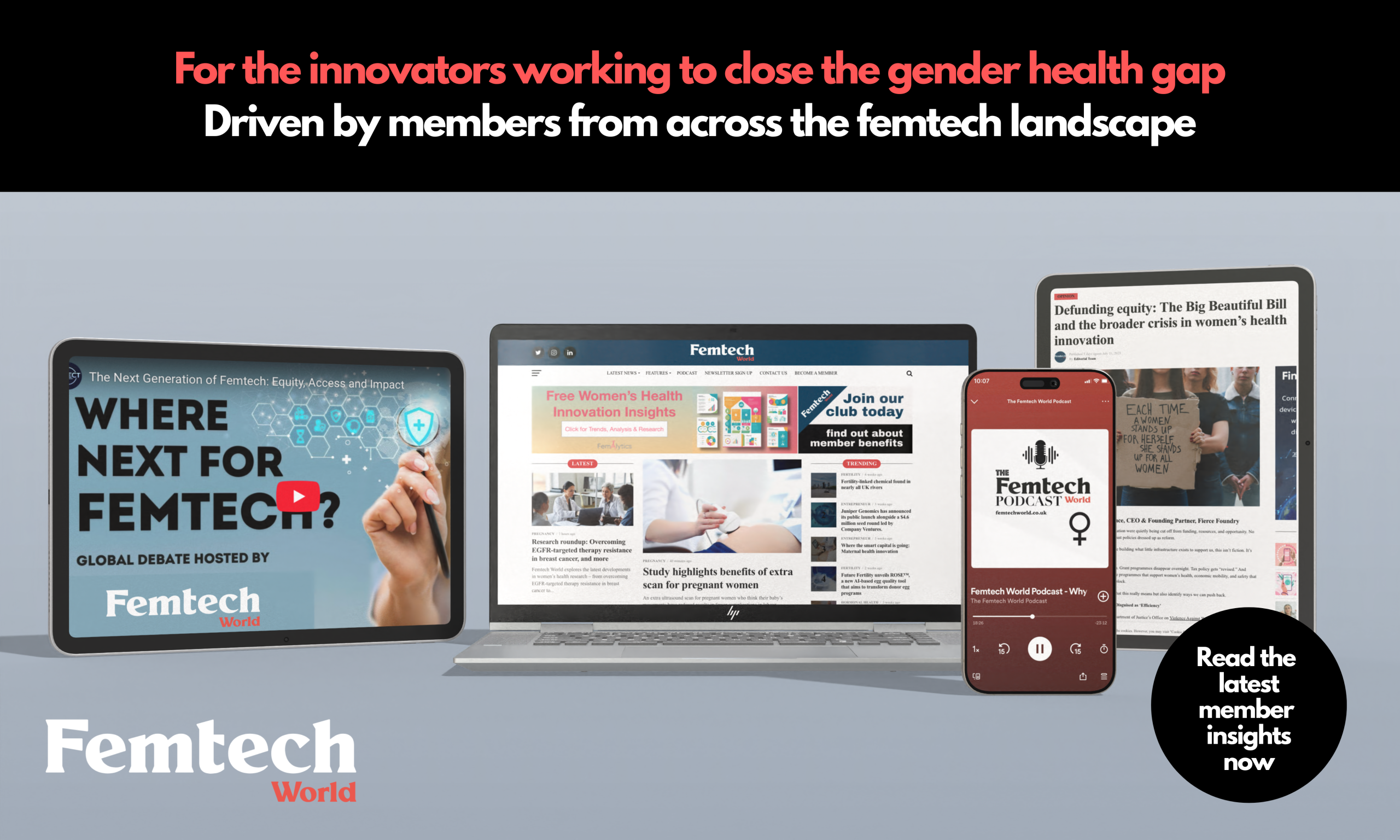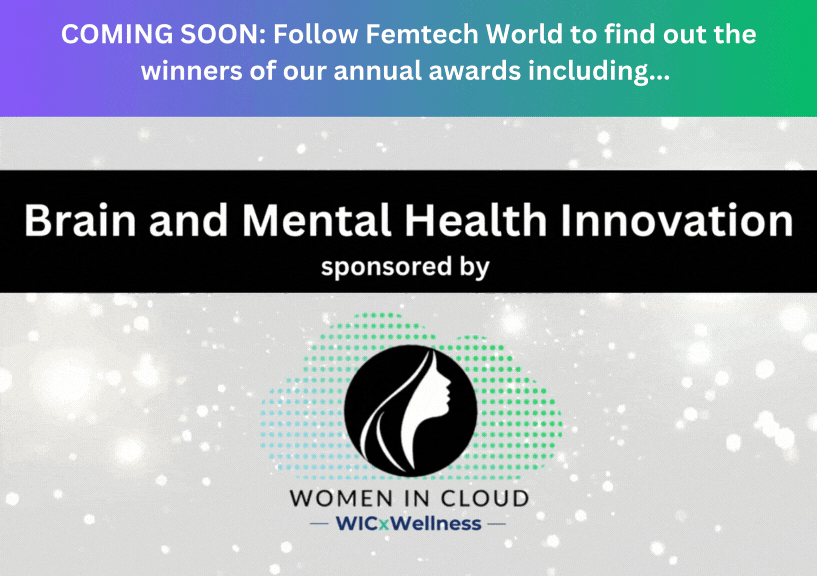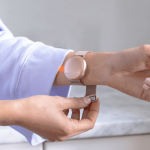Hormonal health
Blood type linked to risk of premature birth, study suggests

A woman’s blood group may influence her risk of premature birth, according to research examining over 74,000 maternity records.
The study found women with blood groups B and O faced higher risk of spontaneous preterm birth, while those with group A had lower risk.
Preterm birth means labour starts naturally before 37 weeks of pregnancy.
Dr Lynne Sykes is lead researcher and clinical associate professor at Imperial College London, and consultant obstetrician at Imperial College Healthcare NHS Trust.
She said: “Although we did not establish causation, we have identified a genetic link that can influence the risk of spontaneous premature birth in women.
“This could potentially impact women in the future by identifying risk earlier in pregnancy and by offering more tailored interventions.
“While we need further research, the prospect of moving towards personalised care in this area is hugely exciting.”
Researchers analysed anonymised maternity records, including high-risk pregnancies.
They believe women with blood group A are more likely to carry higher proportions of Lactobacillus crispatus, a protective bacterium, and show less inflammation – both factors linked to healthier pregnancies.
Risk patterns varied depending on other medical factors.
For women whose only risk was previous cervical surgery, blood group B was linked to a greater chance of preterm delivery. Among women with a history of late miscarriage or prior premature birth, group O showed the highest risk.
Microbiome analysis of 596 high-risk women revealed possible biological mechanisms.
Women with blood group A were more likely to carry Lactobacillus crispatus. Groups B and O were linked to more diverse bacterial patterns.
In women with group O, this bacterial profile was directly tied to inflammation and spontaneous preterm birth.
The researchers also showed that blood group sugars are secreted into vaginal fluid and can bind to certain vaginal bacteria.
But they lacked “secretor status” data – a genetic factor affecting whether these sugars are present. About 80 per cent of people are “secretors”, while 20 per cent are not.
The findings suggest ABO blood group, routinely tested early in pregnancy, could help assess preterm birth risk when combined with other clinical factors.
The team controlled for ethnicity, which affects both blood group prevalence and preterm birth risk.
Dr Sykes said: “What excites me most is the opportunity this presents for truly personalised medicine in pregnancy, something that has been sorely lacking in our field.
“The treatments we currently offer to prevent preterm birth have barely changed in decades. This research opens the door to more targeted, biologically-informed interventions.”
A clinical trial starting this autumn, funded by March of Dimes in the US, will test whether probiotic treatment with Lactobacillus crispatus (Lactin-V) can reduce premature birth in high-risk women – and whether response varies by blood group.
News
Thriving through the ups and downs: A guide to women’s mental health

By Naomi Magnus, psychotherapist and founder at North London Therapy
Women’s health is closely linked to our biology, hormones, and the way our brains are wired, all of which shape our life experiences.
From the teen years right through to adulthood, hormonal ups and downs can affect mood, thinking, and emotional resilience in ways that are uniquely female.
Oestrogen and progesterone, for instance, don’t just influence fertility – they also play a key role in regulating neurotransmitters like serotonin and dopamine, which affect mood and anxiety.
In your twenties, when careers, relationships, and life choices are all coming together, it’s perfectly normal to feel anxious or low at times.
Anxiety disorders can often be connected to women’s hormonal and neurological differences. Recognising this can be really reassuring – anxiety can simply be a reflection of a complex, finely tuned system.
A woman’s menstrual cycle can have a big impact on energy, focus, and mood throughout their life, yet many women aren’t taught to track or anticipate these changes.
Later on, life events like pregnancy, postpartum shifts, and perimenopause bring even bigger hormonal swings, which can trigger mood changes, brain fog, or longer-term mental health challenges.
Schools have a crucial role to play in helping young women understand their bodies and mental health.
While the current UK national curriculum covers basic reproductive biology and puberty, it often misses the full picture of hormonal cycles, mental health, and the connection between the two.
Comprehensive education should include tracking menstrual cycles, recognising mood and energy patterns, understanding stress and anxiety triggers, and helping young girls to develop healthy coping strategies.
Teaching these skills early on equips girls with self-awareness, confidence, and the tools to manage their physical and emotional wellbeing throughout life.
Menopause is another life stage that brings significant hormonal changes, which can affect mental health.
As oestrogen and progesterone decline, many women notice mood swings, anxiety, low energy, and brain fog.

Naomi Magnus
Lifestyle adjustments can help – regular exercise, a balanced diet rich in omega-3s and whole foods, good sleep hygiene, and mindfulness or meditation practices can all support mood and cognitive function.
Therapy, such as cognitive behavioural therapy (CBT) or counselling, is effective for managing anxiety or low mood.
For some, hormone replacement therapy (HRT) may be recommended by a GP or specialist to stabilise hormones and alleviate both physical and psychological symptoms.
Women – at any age – can help themselves to feel better when hormone changes strike.
I am an advocate for mindfulness, good sleep, gentle exercise, socialising, and tracking your cycle alongside your mood.
Technology is stepping up – there are some amazing apps that make it easier to understand how your mental health and hormones interact.
It’s also worth acknowledging that times are tough globally – economic uncertainty, climate anxiety, and social pressures can all take their toll on our mental health.
While we can’t control everything around us, getting to know our own bodies and how we respond to stress can make a real difference.
By tuning into our cycles, moods, and energy levels, we can better anticipate challenging days and create a sense of calm amidst the chaos.
Understanding that women’s brains and mental health respond differently across life stages is really important.
Women should approach mental health proactively – because thriving isn’t just about surviving, it’s about knowing your mind and body inside out.
News
Dame Lesley Regan vows to ‘revamp’ UK’s Women’s Health Strategy – “we’ve let women and girls down”

The Women’s Health Ambassador for England, Dame Lesley Regan, has promised to overhaul the government’s 10-year strategy, as she revealed the scale and cost of the UK’s gender health gap three years on.
Speaking at Women’s Health Week in London earlier this month, Regan revealed that Health Secretary Wes Streeting has tasked her with “revamping” the government’s Women’s Health Strategy, following the publication of his 10-year plan to reform the NHS.
Promising to “rise to the challenge”, Regan also hinted at plans to streamline pathways for innovators, to fast-track solutions into the NHS, and said that the system must stop “admiring the problem” and start redesigning care around women’s lives.
“We are the only country I know in the world with a national health service free at the point of delivery,” said Regan, during her closing keynote speech on Thursday 16 October.
“Yet we’ve got so complacent about the important things in women’s health that we’ve really let girls and women down.”
Major health challenges for women
A Professor of Obstetrics and Gynaecology at Imperial College London, Regan painted a stark picture of the state of women’s health in 2025.
As well as huge gaps in care for women and girls experiencing menstrual symptoms such as PMS and menopause, women face a raft of wider health challenges.
Contraception has become increasingly difficult to access, resulting in almost half of all pregnancies being unplanned, and as well as having the highest teenage pregnancy rate in Europe, abortion rates are also rising among women over 32.
Meanwhile, cervical screening uptake is at an all-time low, with marginalised women at greatest risk despite cervical cancer being preventable with HPV vaccination and smear tests.
The number of high-profile maternity scandals in recent years reflects a flawed system, where the annual amount spent on litigation costs by NHS Resolution exceeds the allocated total funding for maternity care.
Maternal mortality is three times higher in Black women and twice as high in Asian women, with suicide now a leading cause of direct maternal death, one in four among teenage girls.
According to Regan, many of those are known to mental health services.
“In the last maternal mortality report, every single woman who died was known to mental health services,” she said.
“I have to conclude that we let them down.”
Regan also highlighted gender disparities and inequalities in chronic health conditions, which often go undetected or misdiagnosed in women.
Conditions like Parkinson’s and Alzheimer’s, for example, present differently in females, who are twice as likely to be diagnosed with dementia.
And while women are twice as likely to die from cardiovascular disease as from cancer (52 per cent deaths annually), they are often diagnosed later than men, due to a lack of understanding of their symptoms.
Major causes of morbidity and mortality, frailty and osteoporosis, also disproportionately affect women.
More than a fifth of females (21 per cent) are affected, compared to six per cent of men, with women typically experiencing twice as many fractures.
There are vast geographical inequalities, too.
Every year, 500,000 fragility fractures occur throughout the UK, but less than 53 per cent of the population can access Fracture Liaison Services in the community, with quality and standards varying significantly.
“Until very recently, most politicians across the globe viewed women’s health as maternity,” said Regan.
“But women spend most of their lives post-reproductive, and we have never really catered for that… We’ve got to look after women’s health across their life course.”
Delivering on women’s health hubs
The Women’s Health Strategy, first published in 2022, was shaped by the largest ever call for evidence in a Department of Health consultation, gathering a total of 100,000 responses. Out of these, 84 per cent of women reported not being listened to by healthcare professionals.
In response, the strategy set out a six-point plan which promised to address these inequalities, including through the establishment of women’s health hubs.
Regan believes hubs are crucial for delivering on the promises of the 10-year plan, including shifting from hospital to community care, moving from analogue to digital, and pivoting from treatment to prevention.
Successful case studies from hubs in some of the most deprived areas of England have demonstrated early benefits of these hubs, including reduced secondary-care referrals, shorter waiting lists, improved access and equity, workforce retention, more specialised training, and fewer adverse outcomes.
But not all Integrated Care Boards across England are offering all core services.
Delivering more Women’s Health hubs is part of a five-point plan moving forward, according to Regan, which also includes improving maternity and menstrual care, tackling inequalities and funding more research.
“We’ve continued to admire the problem, but that’s what we’ve got to stop,” Regan said.
“The most important thing to be able to do things better is that you have to be willing to do it differently.”
A “front door” for change
Building on this, Regan expressed her “frustration” at some of the challenges faced by startups trying to bring solutions to market, hinting at plans for a hub or a “big front door” to streamline regulatory approval processes.
“Almost every time I talk to entrepreneurs or investors, they tell me the same story: ‘We’ve been knocking on the door of government, and we always get pushback’,” she said.
“I want to paint that door bright yellow so you’ll never miss it, and when it opens, I want people to be welcoming. We need to stop sending people off to navigate endless pathways. There should be a hub that sorts it.”
Benefit to the UK economy
There’s a strong economic argument for the UK government to deliver on these promises.
Global life expectancy is increasing, and while women typically live longer than men, they spend more of their lives in poor health.
A woman will experience ill health for an average of nine years throughout her life, impacting her ability to be present and/or productive at home, in the workforce, and in the community.
Regan shared analysis from McKinsey Health Institute, which shows that more than half of the women’s health gap affects women during their working-age years, significantly impacting the UK’s GDP.
At least 56 per cent of Disability-Adjusted Life Years stem from conditions which impact women differently or disproportionately.
Taking this into account, closing the gender health gap in the UK could generate more than £36bn in annual GDP by 2040, a figure that could exceed $1 trillion globally.
A 2024 report published by the NHS Confederation estimates that the economic cost of absenteeism due to severe period pain and heavy periods, alongside endometriosis, fibroids and ovarian cysts, is nearly £11 billion per year, while 60,000 women are thought to be unemployed due to menopause symptoms.
The findings suggest that for every additional £1 invested in obstetrics and gynaecology per woman in England, the return on investment is estimated at £11.
Dutch collaboration
Regan has now been invited to the Netherlands to help officials there develop their own Women’s Health Strategy.
In conversation with Dutch Minister Judith Tielen, Regan highlighted the need for international collaboration to accelerate wider global change when it comes to women’s health.
The Netherlands is already collaborating across ministerial department’s including employment and social security, with education next.
Tielen shared the outcomes from an initiative at Amsterdam University Medical Centre, which offered free gynaecology consultations to female staff to reduce sick leave.
“Hundreds of women signed up in days, and sickness absence dropped significantly,” she said.
“It’s a societal question, not one for women to solve alone.”
Regan agreed, adding: “We cannot afford for women not to be part of the solution.”
News
Most midlife women with menopause symptoms don’t seek care, research finds

More than 80 per cent of women with menopause symptoms do not seek medical help, despite the impact on daily life, according to new research.
The study surveyed nearly 5,000 women aged 45 to 60 across four Mayo Clinic primary care sites, finding that more than three-quarters had experienced symptoms affecting work productivity and overall wellbeing.
Conducted by the Mayo Clinic, the research found that menopause symptoms remain underrecognised, undertreated and inadequately addressed within the healthcare system, despite the availability of effective treatments.
Lead author Ekta Kapoor is an endocrinologist and menopause specialist at the Mayo Clinic in Rochester.
The researcher said: “Menopause is universal for women at midlife, the symptoms are common and disruptive, and yet, few women are receiving care that could help them.
“This gap has real consequences for women’s health and quality of life, and it’s time we address it more proactively.”
More than one-third (34 per cent) the survey respondents reported moderate to very severe symptoms.
Sleep disturbances and weight gain were among the most common issues, affecting more than half of participants.
Only about one in four women were receiving treatment at the time of the survey.
While some preferred to manage symptoms independently, others said they were too busy or unaware that effective treatments exist.
Without proper treatment, menopause symptoms can negatively affect sleep, mood and cognition, as well as productivity at work and home.
The study noted that women often do not raise menopause-related concerns during medical appointments.
Researchers emphasised the need for strategies to destigmatise menopause care and make it more visible and accessible.
Work is underway to develop questionnaires, digital tools and smartphone apps that help women identify symptoms, learn about treatment options and have more productive discussions with their healthcare professionals.
Dr Kapoor said: “Our goal is to educate women and healthcare professionals about menopause.
“By making it easier to recognise and understand symptoms, we can close the gap between need and care – and help midlife women live healthier, more fulfilling lives.”
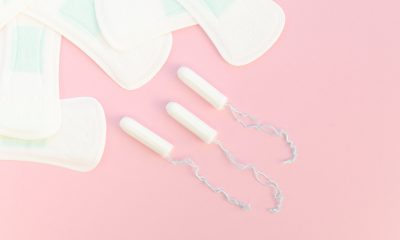
 News2 weeks ago
News2 weeks agoDozens of women report suffering painful burns after using Always sanitary towels
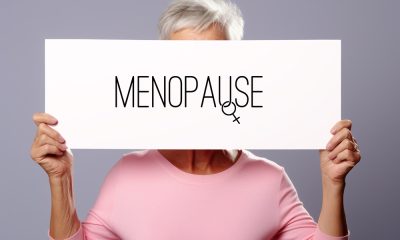
 Ageing4 weeks ago
Ageing4 weeks agoFDA plans to revise black box warning on menopause hormone therapies

 News2 weeks ago
News2 weeks agoWomen’s health innovations recognised in TIME’s Best Inventions 2025

 News3 weeks ago
News3 weeks agoAI-powered women’s health companion Nexus launches in UK

 Diagnosis4 weeks ago
Diagnosis4 weeks agoScientists turn human skin cells into eggs in IVF breakthrough

 Wellness2 weeks ago
Wellness2 weeks agoCutting through the noise in femtech – key takeaways from Women’s Health Week 2025
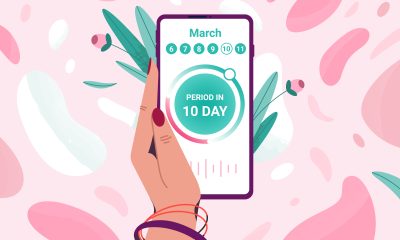
 Adolescent health3 weeks ago
Adolescent health3 weeks agoMenstrual cycle affects women’s reaction time, study finds

 News4 weeks ago
News4 weeks agoDaily pill could delay menopause ‘by years,’ study finds




